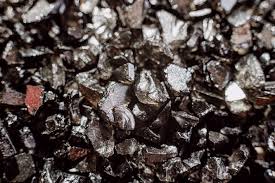
In the sake of national security, China has released a list of rare earth restrictions that restrict the mining, smelting, and trading of these vital elements, which are used to produce everything from consumer electronics to magnets for electric cars.
The State Council or cabinet issued the regulations on Saturday, stating that the state owns rare earth resources and that the government will supervise the growth of the industry related to rare earths. Rare earths are a group of 17 minerals that China is the world's leading producer of, making up almost 90% of the refined output worldwide.
The EU set ambitious 2030 targets for domestic production of minerals crucial to the green transition, particularly rare earths, because of their use in permanent magnets that power wind energy and EV motors. This is because of the minerals' global industrial significance. The law went into effect in May.
Demand in the EU is expected to increase seven times by 2050 and six times by 2030.
According to the new Chinese laws, the State Council will create a system for tracking the traceability of rare earth products, and they go into effect on October 1.
The State Council mandated that businesses engaged in the mining, smelting, and separation of rare earth elements as well as the export of their byproducts set up a system for recording product flows, "truthfully" document the flow, and register it into the traceability database.
Due to the necessity to safeguard national security and interests, China placed export limits on germanium and gallium, two elements that are widely utilised in the chip industry, as early as last year.
After the presidential debate, investors evaluated political uncertainties and the most recent inflation statistics, which led to a lower closing price for US equities on Friday.
In addition to prohibiting the use of technology for rare earth extraction and separation, it also prohibited the export of technology used in the production of rare earth magnets.
The limitations on rare earth imports stoked concerns that they will worsen ties with the West, especially the United States, which accuses China of using economic pressure to exert control over other nations. Beijing disputes the assertion.
China's rare earth laws also coincide with the EU preparing to slap temporary tariffs on Chinese electric vehicles (EVs) on July 4 in an effort to shield the 27-member bloc from what it claims is an influx of EVs made with unfair state subsidies. However, both parties have stated that discussions over the proposed levies are planned.
(Source:www.japantimes.co.jp)
The State Council or cabinet issued the regulations on Saturday, stating that the state owns rare earth resources and that the government will supervise the growth of the industry related to rare earths. Rare earths are a group of 17 minerals that China is the world's leading producer of, making up almost 90% of the refined output worldwide.
The EU set ambitious 2030 targets for domestic production of minerals crucial to the green transition, particularly rare earths, because of their use in permanent magnets that power wind energy and EV motors. This is because of the minerals' global industrial significance. The law went into effect in May.
Demand in the EU is expected to increase seven times by 2050 and six times by 2030.
According to the new Chinese laws, the State Council will create a system for tracking the traceability of rare earth products, and they go into effect on October 1.
The State Council mandated that businesses engaged in the mining, smelting, and separation of rare earth elements as well as the export of their byproducts set up a system for recording product flows, "truthfully" document the flow, and register it into the traceability database.
Due to the necessity to safeguard national security and interests, China placed export limits on germanium and gallium, two elements that are widely utilised in the chip industry, as early as last year.
After the presidential debate, investors evaluated political uncertainties and the most recent inflation statistics, which led to a lower closing price for US equities on Friday.
In addition to prohibiting the use of technology for rare earth extraction and separation, it also prohibited the export of technology used in the production of rare earth magnets.
The limitations on rare earth imports stoked concerns that they will worsen ties with the West, especially the United States, which accuses China of using economic pressure to exert control over other nations. Beijing disputes the assertion.
China's rare earth laws also coincide with the EU preparing to slap temporary tariffs on Chinese electric vehicles (EVs) on July 4 in an effort to shield the 27-member bloc from what it claims is an influx of EVs made with unfair state subsidies. However, both parties have stated that discussions over the proposed levies are planned.
(Source:www.japantimes.co.jp)














